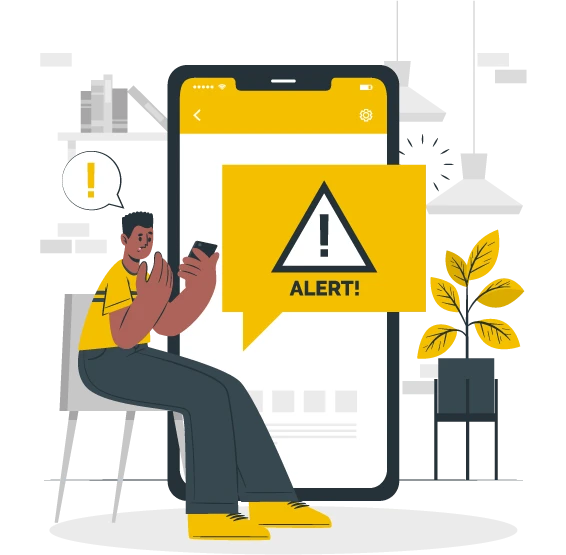TPS Checker
When you’re making marketing calls, it’s important to ensure that you’re contacting the right people
After all, you don’t want to waste your time and resources reaching out to people who aren’t interested in what you have to say

Are your telephone numbers CTPS compliant?
Did you know that the ICO could fine you up to £500,000 if you call a telephone number registered with the CTPS?
What is TPS?
So, what is TPS, and how does it work? TPS (Telephone Preference Service) is a government-backed scheme that allows individuals to opt out of receiving unsolicited marketing calls. It is a legal requirement for businesses to check the TPS database before making sales calls. By using a TPS checker, businesses can ensure they do not contact individuals who have opted out of receiving marketing calls, helping them avoid substantial fines and maintain compliance.
Why is TPS screening important?
Failing to check the TPS register before making marketing calls can lead to significant fines of up to £500,000. To stay compliant, businesses must use an up-to-date TPS checker. The ICO enforces these rules strictly, and non-compliance can result in hefty penalties, reputational damage, and loss of customer trust.
What about CTPS?
CTPS (Corporate Telephone Preference Service) is similar to TPS but applies to businesses rather than individuals. If a company has registered its number with CTPS, it is opting out of receiving unsolicited marketing calls. Just like with TPS, failing to screen numbers against the CTPS register can lead to severe penalties.
Make an enquiry about CTPS Checker Services
When it comes to marketing, accuracy is key. You want to make sure that the people you are contacting are the ones you intend to contact, and not some other person with a similar name. This is where TPS checking comes in.

Frequently Asked Questions
TPS checking ensures compliance with legal regulations, helping businesses avoid fines of up to £500,000 and protect their reputation.
By respecting customer preferences and avoiding unwanted calls, businesses demonstrate professionalism and improve customer relationships.
Yes, using a TPS checker minimises the risk of legal complaints, ICO investigations, and costly fines due to non-compliance.
It ensures that your marketing efforts target only interested recipients, increasing efficiency and improving conversion rates.
Yes, screening numbers before calling helps businesses save time and money by focusing on prospects who have not opted out.
Businesses should check their contact lists at least every 28 days to ensure compliance with the latest TPS registry updates.
Businesses that fail to check the TPS register risk hefty fines, loss of customer trust, and potential legal repercussions from the ICO.

One way to avoid potential legal issues is by using a CTPS checker
This tool allows you to verify the contact details of the person you’re trying to reach, so you can be sure that you’re calling the right person.
CTPS checkers are available online, and they’re easy to use. Simply enter the person’s name and address, and the checker will give you their contact details.
This is a valuable tool for any marketer, and it’s essential for anyone who wants to make the most of their marketing efforts. CTPS verification ensures that your calls are going to the right people, and that means less wasted time and money for your business.
-
Avoid potential legal issues
-
Make sure your calling the intended recipient
-
Maximise the value of your marketing campaigns
-
Protect Your Business Reputation
-
Save Time and Resources

Testimonials







